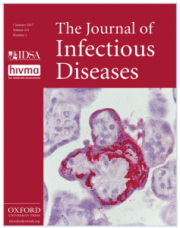Posted on March 09, 2015
Source: the Journal of infectious Diseases

Justin R. Bailey, Kimberly A. Dowd, Anna E. Snider, William O. Osburn, Shruti H. Mehta, Gregory D. Kirk, David L. Thomas, Stuart C. Ray
Background. Human immunodeficiency virus (HIV) infection leads to lower rates of hepatitis C virus (HCV) clearance after acute infection, higher HCV viremia, and accelerated progression of HCV-related fibrosis. The mechanisms underlying this acceleration of HCV progression by HIV are poorly understood, but HIV-induced dysfunction in the anti-HCV humoral immune response may play a role.
Methods. To define the effect of HIV coinfection on the anti-HCV antibody response, we measured anti-HCV envelope binding antibody titers, neutralizing antibody (nAb) titers, and nAb breadth of serum from HCV-infected subjects isolated longitudinally before and after incident HIV infection.
Results. A significant reduction in HCV envelope-specific binding antibody and nAb titers was detected in subjects with CD4+ T-cell counts <350/mm3 after HIV infection, and subjects with CD4+ T-cell counts <200/mm3 also showed a reduction in nAb breadth. Subjects who maintained CD4+ T-cell counts ≥350/mm3 displayed little to no decline in antibody levels.
Conclusions. Depletion of CD4+ T cells by HIV infection results in a global decline in the anti-HCV envelope antibody response, including binding antibody titers, nAb titers, and nAb breadth.